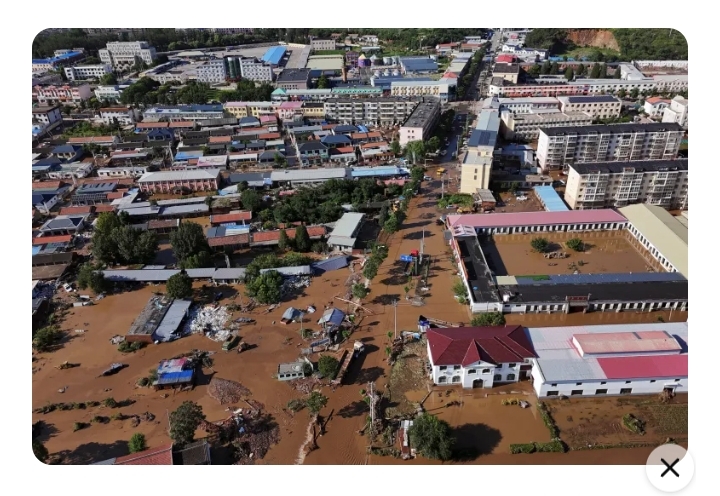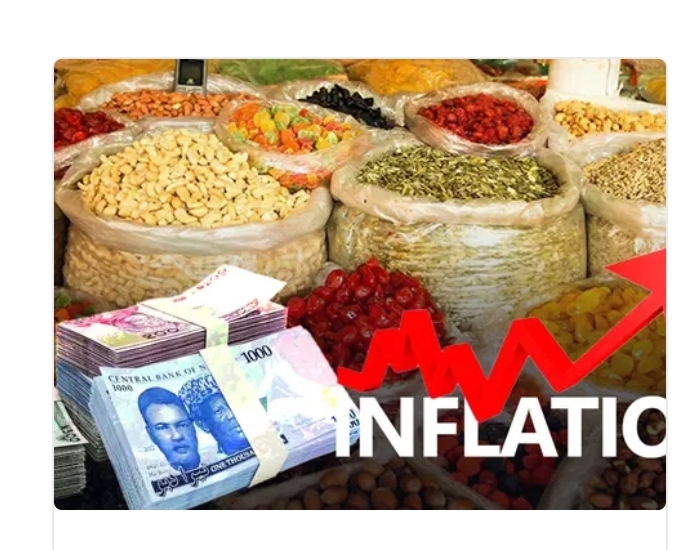The Nigeria Humanitarian Fund (NHF) has announced fresh allocations to address rising food insecurity and anticipated flooding across the conflict-affected states of Borno, Adamawa, and Yobe (BAY), where millions face deteriorating humanitarian conditions.
Nigeria is facing an escalating humanitarian emergency in the northeast, with conflict, food insecurity, and climate shocks threatening millions of lives. According to the March 2025 Cadre Harmonisé, about 4.6 million people in Borno, Adamawa, and Yobe (BAY) states are expected to face crisis or emergency levels of food insecurity during the peak lean season from June to September.
NHF allocates $16.6m to fight food insecurity, flood risks in Northeast
By : ‘Sola Richards
Date: 21 Aug 2025
Share :
China-flood
The Nigeria Humanitarian Fund (NHF) has announced fresh allocations to address rising food insecurity and anticipated flooding across the conflict-affected states of Borno, Adamawa, and Yobe (BAY), where millions face deteriorating humanitarian conditions. Newspaper subscription bundles
Nigeria is facing an escalating humanitarian emergency in the northeast, with conflict, food insecurity, and climate shocks threatening millions of lives. According to the March 2025 Cadre Harmonisé, about 4.6 million people in Borno, Adamawa, and Yobe (BAY) states are expected to face crisis or emergency levels of food insecurity during the peak lean season from June to September.
The United Nations Children’s Fund (UNICEF) has also projected that 2.6 million children under five will be affected by malnutrition this year, with one million at risk of severe acute malnutrition — double the 2024 figure.
Conflict, insecurity, restricted access to farmland, extreme weather events, and rising food prices have compounded the crisis. Severe flooding is also forecast for 2025, raising fears of further displacement and vulnerability in communities already struggling to survive.
In August, the NHF confirmed that it had mobilized $15.9 million in contributions this year, bringing its cumulative funding since 2017 to more than $215 million. Of this year’s total, $16.6 million has been allocated to four separate interventions benefiting over 970,000 people in the BAY states.
The allocations include $14.5 million for the 2025 Lean Season Multi-Sectoral Plan, which focuses on nutrition, health, water, sanitation, and protection services. The plan is designed to stabilize food security and reduce mortality through targeted partnerships with NGOs. Notably, 80 percent of the Standard Allocation (SA1) of $4.5 million has been directed to national NGOs, reflecting a strong commitment to localization.
NHF allocates $16.6m to fight food insecurity, flood risks in Northeast
By : ‘Sola Richards
Date: 21 Aug 2025
Share :
China-flood
The Nigeria Humanitarian Fund (NHF) has announced fresh allocations to address rising food insecurity and anticipated flooding across the conflict-affected states of Borno, Adamawa, and Yobe (BAY), where millions face deteriorating humanitarian conditions. Newspaper subscription bundles
Nigeria is facing an escalating humanitarian emergency in the northeast, with conflict, food insecurity, and climate shocks threatening millions of lives. According to the March 2025 Cadre Harmonisé, about 4.6 million people in Borno, Adamawa, and Yobe (BAY) states are expected to face crisis or emergency levels of food insecurity during the peak lean season from June to September.
The United Nations Children’s Fund (UNICEF) has also projected that 2.6 million children under five will be affected by malnutrition this year, with one million at risk of severe acute malnutrition — double the 2024 figure.
Conflict, insecurity, restricted access to farmland, extreme weather events, and rising food prices have compounded the crisis. Severe flooding is also forecast for 2025, raising fears of further displacement and vulnerability in communities already struggling to survive. Newspaper subscription bundles
In August, the NHF confirmed that it had mobilized $15.9 million in contributions this year, bringing its cumulative funding since 2017 to more than $215 million. Of this year’s total, $16.6 million has been allocated to four separate interventions benefiting over 970,000 people in the BAY states.
Related News
Arewa leaders lament North’s multiple tragedies of banditry, floods, deaths
Katsina seeks federal help to tackle insecurity
Insecurity: Ex-ALGON boss urges N’Assembly to institutionalise community policing
The allocations include $14.5 million for the 2025 Lean Season Multi-Sectoral Plan, which focuses on nutrition, health, water, sanitation, and protection services. The plan is designed to stabilize food security and reduce mortality through targeted partnerships with NGOs. Notably, 80 percent of the Standard Allocation (SA1) of $4.5 million has been directed to national NGOs, reflecting a strong commitment to localization.
A further $2 million has been allocated to anticipatory action to mitigate projected flooding impacts in at-risk areas, building on lessons from the 2024 intervention. This allocation will provide multi-purpose cash assistance, early warning messaging, camp coordination and management support, and protection services, with implementation led entirely by local organizations. The funding follows a flexible, trigger-based approach that allows resources to be reprogrammed if flood conditions shift beyond initially targeted locations.
The NHF also allocated $100,000 to restore emergency telecommunications in hard-to-reach areas, ensuring humanitarian access and coordination in zones cut off by insecurity or natural disasters.
Announcing the allocations, the NHF said its strategy is to place national NGOs and frontline responders at the center of the humanitarian response in Nigeria’s northeast. “Localization and accountability remain central to the Fund’s work,” it stated, emphasizing that locally-driven responses are more adaptive, cost-effective, and trusted by affected communities
By prioritizing local capacity and partnerships, the NHF is seeking to avert a deepening humanitarian catastrophe in northeast Nigeria, where millions remain caught between conflict, hunger, and the worsening impacts of climate change.











